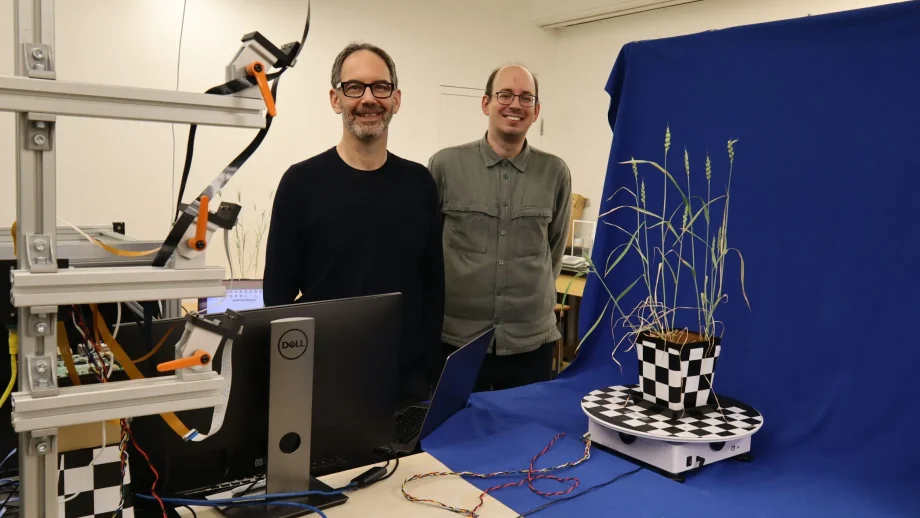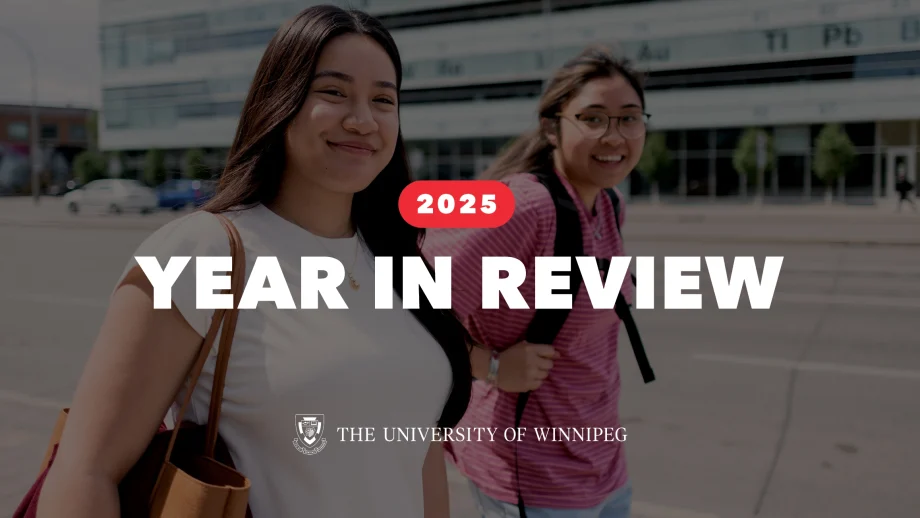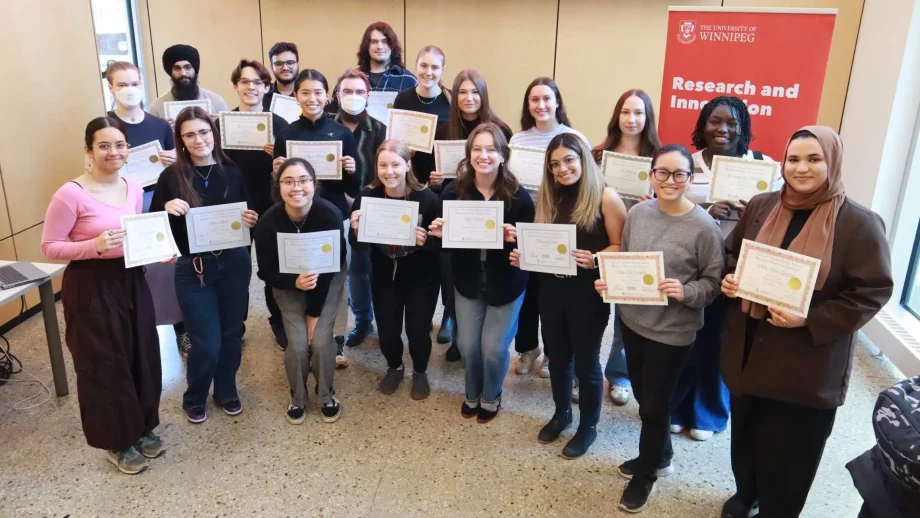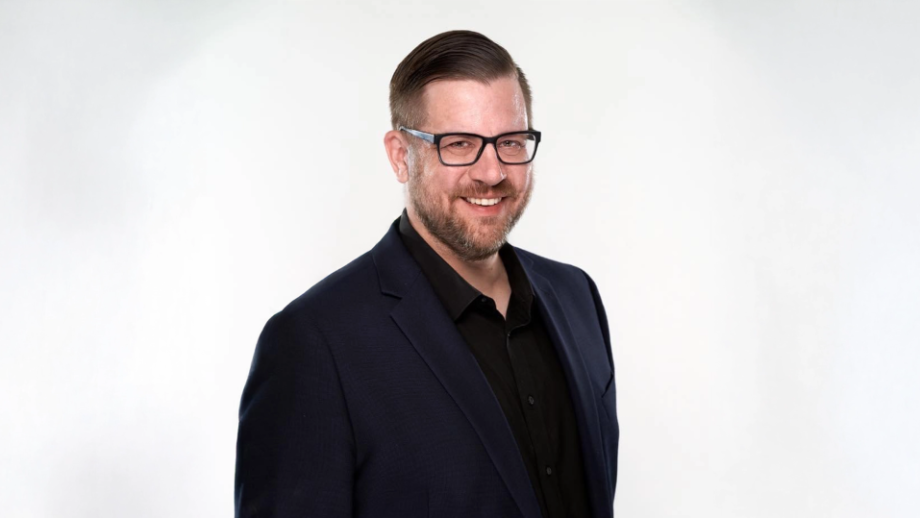A recent Alumni Speaker Series event hosted by The University of Winnipeg Alumni Association not only provided old friends Dr. Angele Maki and Dr. Kleem Chaudhary a chance to catch up, but also valuable insight into how UWinnipeg can prepare all undergraduate students – especially those in the sciences – for their future.
That was a differentiator when we were applying to grad schools – being able to do an undergraduate research project but also TA’ing. A lot of the bigger schools, whether in the United States or Canada, those opportunities aren’t necessarily there, so it was super helpful.
Dr. Kleem Chaudhary
Speaking at Alumni Perspectives: Career Paths in Biotech, Maki and Chaudhary, both of whom graduated from UWinnipeg in 1998 with a Bachelor of Science in Chemistry, shared stories of their post-graduate pursuits, discovering their passions, and the ever-expanding biotech market, while taking time to look back on how UWinnipeg influenced it all.
For Maki, now Senior Vice President and Head of Business Development at ReCode Therapeutics, one of the most important experiences wasn’t necessarily at, but by way of UWinnipeg. By leveraging her undergraduate studies into summer lab work across Canada, Maki managed to spend her breaks from UWinnipeg in Montreal and Saskatoon.
The latter, a government biotech lab that was a division of the National Research Council, piqued her interest in the field and gave her direction.
“That gave me great, hands-on lab experience prior to graduating,” she said.
Undergraduate research experience
Chaudhary, Chief Operating and Business Officer at Redona Therapeutics, added that the ability to work on an undergraduate research project, an opportunity both he and Maki had, was perhaps among the most significant parts of their time at UWinnipeg. As with Maki’s lab work, the projects provided the kind of experiential learning that would not have been possible without the opportunity to get involved in a research project.
But beyond research and lab experience, it was the chance to interact with fellow students, particularly as teaching assistants for introductory chemistry labs, that assisted most in paving the way to graduate school for Maki and Chaudhary. While larger schools tend to reserve such positions for graduate students, UWinnipeg gives undergraduates the chance to act as teaching assistants and that, Chaudhary says, is what gave him a leg up on the competition.
“I saw it at the time as a great opportunity and it ended up being fairly useful,” he said. “That was a differentiator when we were applying to grad schools – being able to do an undergraduate research project but also TA’ing. A lot of the bigger schools, whether in the United States or Canada, those opportunities aren’t necessarily there, so it was super helpful.”
Life after UWinnipeg
The doors opened by their time at UWinnipeg allowed Chaudhary to move on to University of North Carolina in Chapel Hill, where he earned his PhD in Chemistry, while Maki earned her PhD in Biological Chemistry from Stanford University.
It was in the U.S., and after their graduate studies, that Maki and Chaudhary followed divergent paths. For his part, Chaudhary leapt into his career as a chemist, but Maki, whose interest in lab work was waning, started to investigate alternative careers in science. She went on to complete post-doc work at the Scripps Research Institute in La Hoya, California, before landing a business development post in the biotech industry. It wasn’t long after that Chaudhary, too, found himself in biotech.
Now at ReCode, Maki and her team are working to leverage a technology similar to that which is found in COVID-19 vaccines to create the next generation of mRNA and gene correction therapeutics. Meanwhile, Chaudary and his Redona coworkers are developing medicines to address diseases caused by the disregulation of RNA and DNA processes and signalling.
And while both have found considerable success since their departures from UWinnipeg, Maki said there is one thing she might change: how quickly she jumped into graduate school. Citing the attrition rate and that there are experiences to be had outside of academia, she added there’s value in understanding if one is truly passionate about their graduate school pursuits.
“A lot of people realize it’s not what they want to do and drop out, and I think a lot of people end up there just because of momentum and it’s not the right decision for them,” she said. “So, I actually think it’s great to take some time off and maybe work in your field, get a lab job if that’s what’s interesting, and see if you really like it before you make that commitment.”





